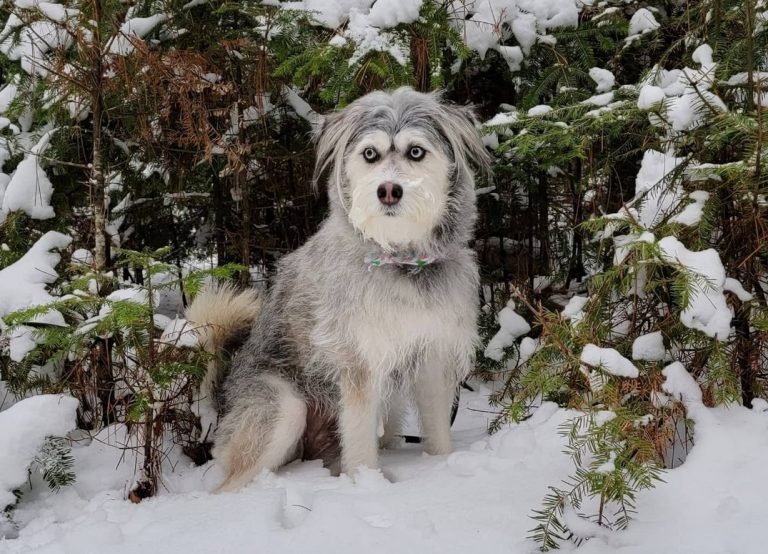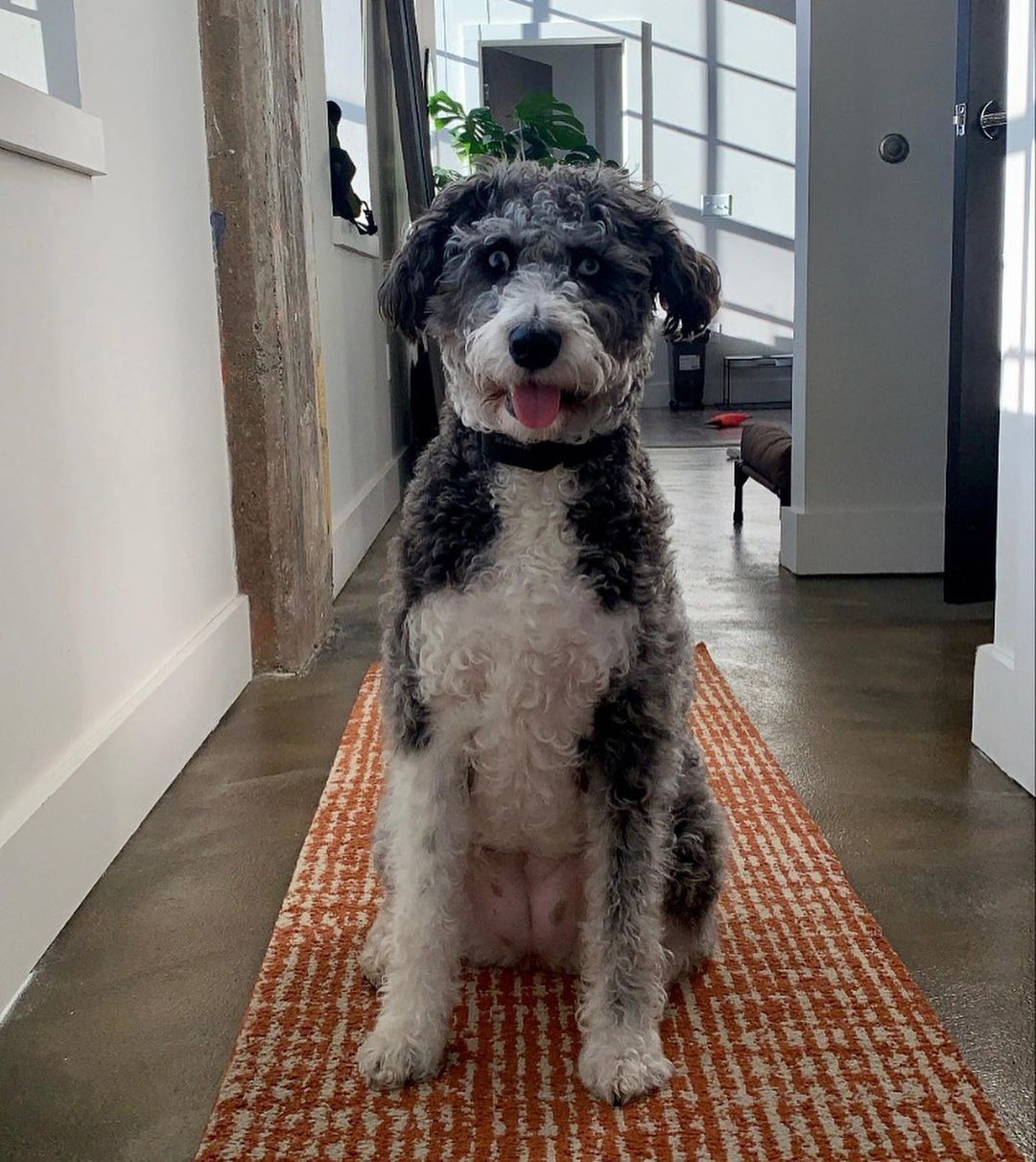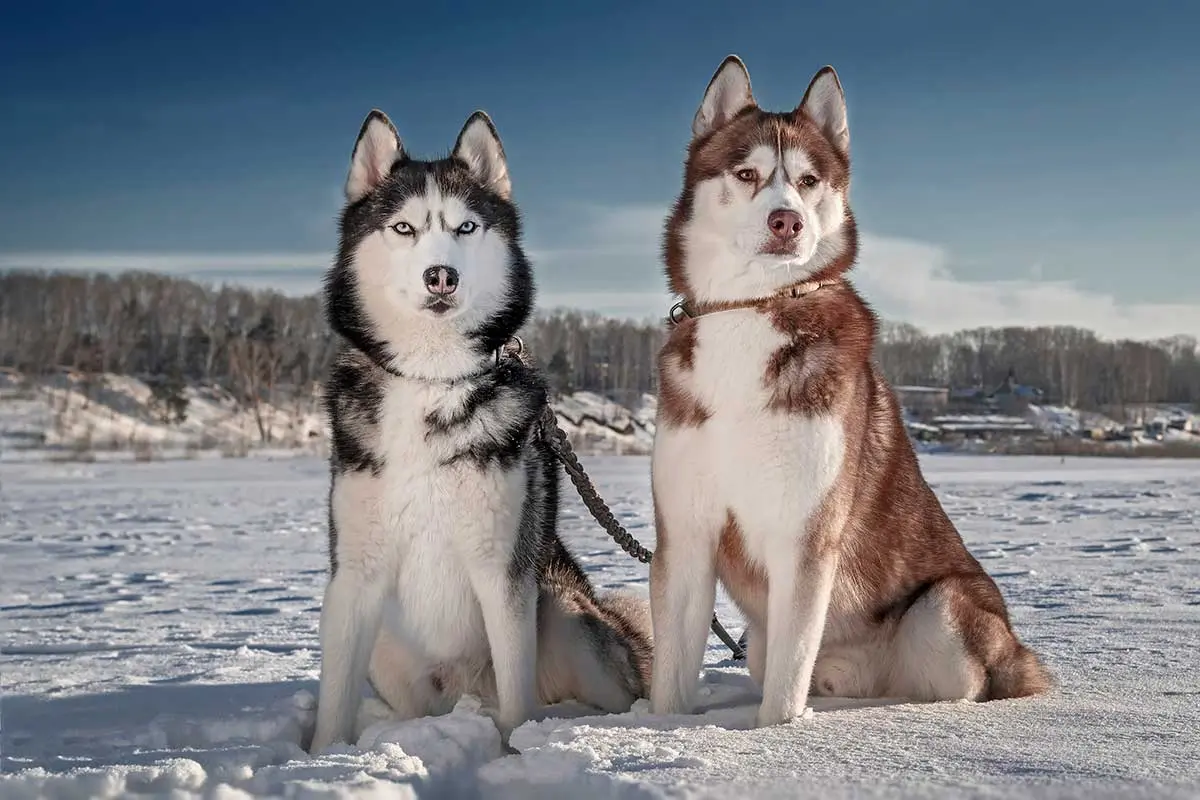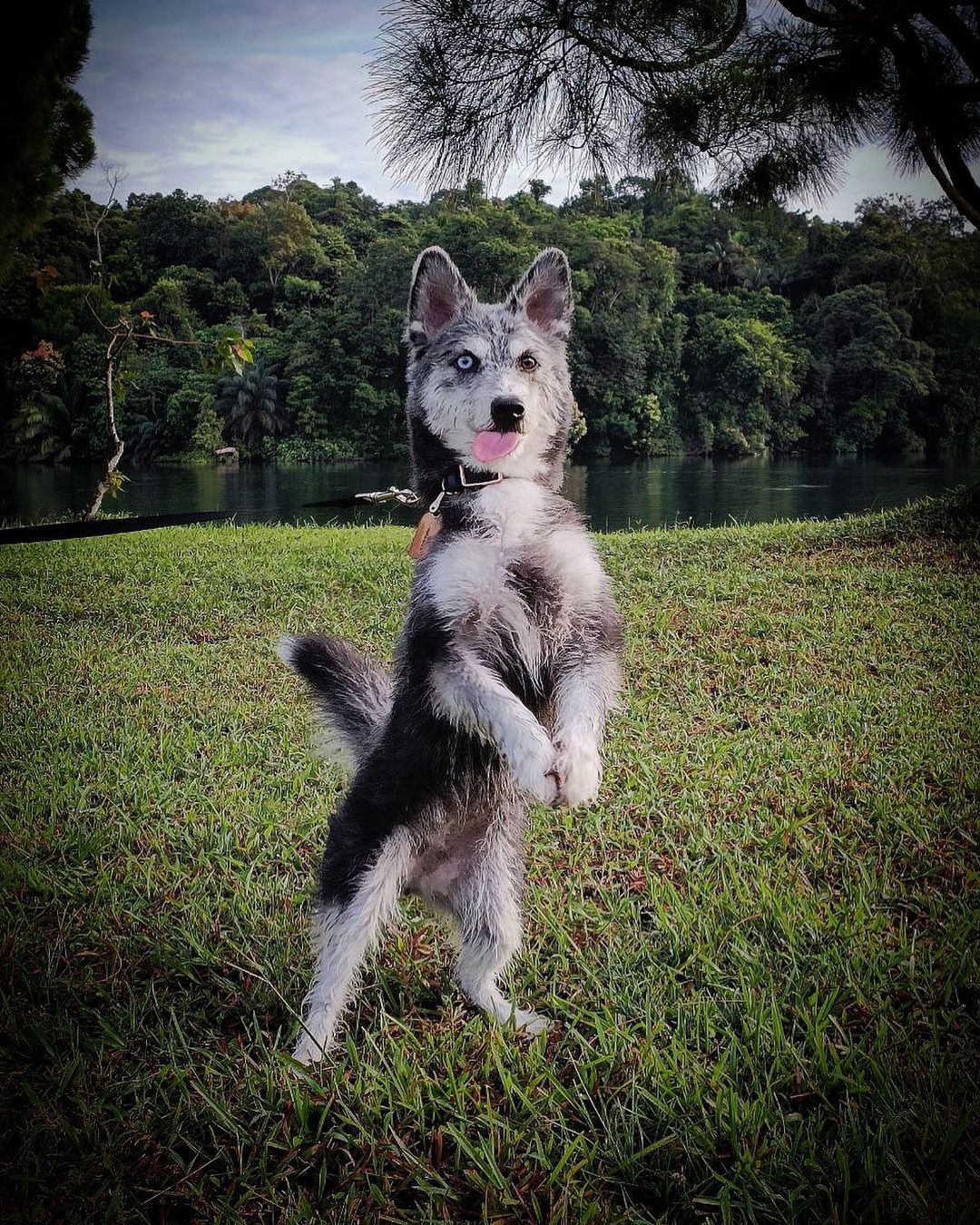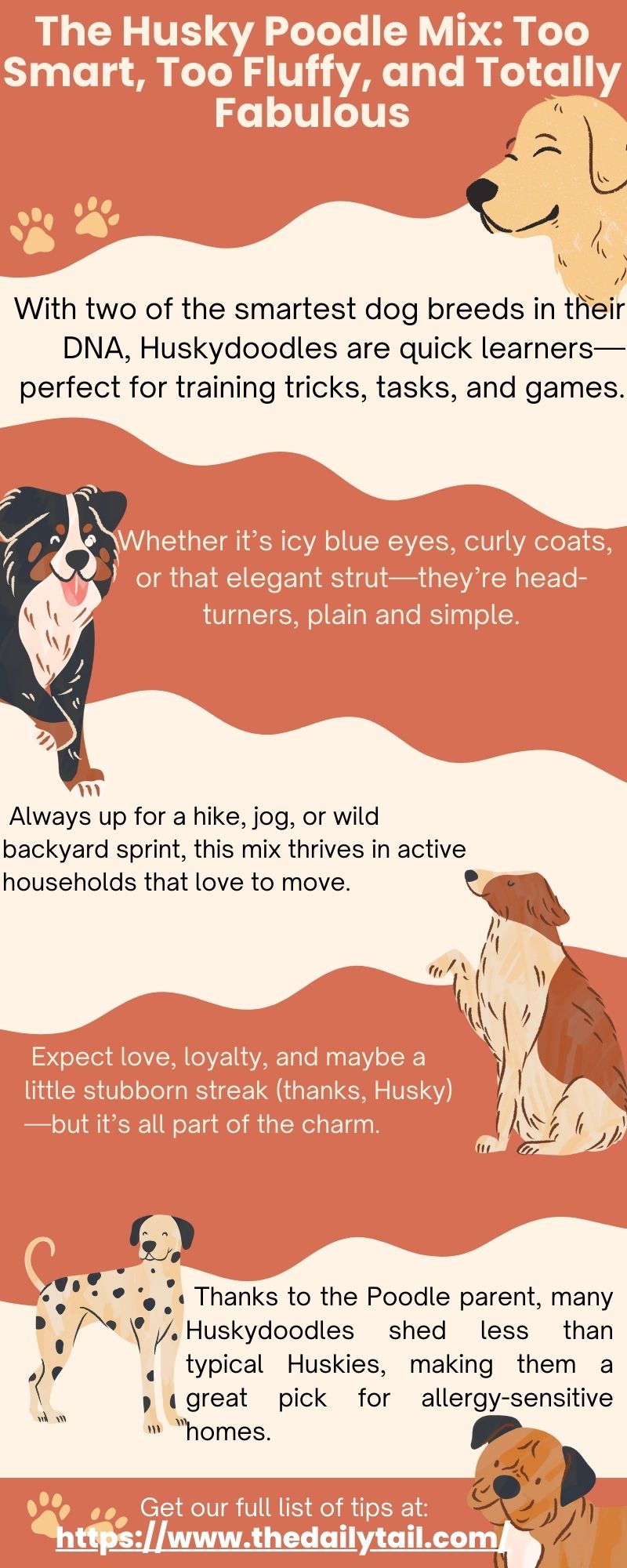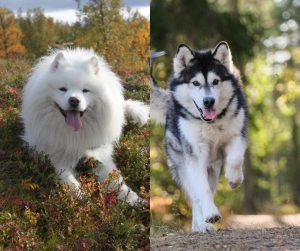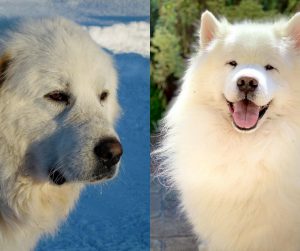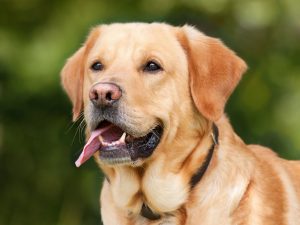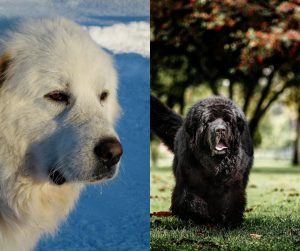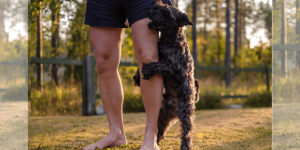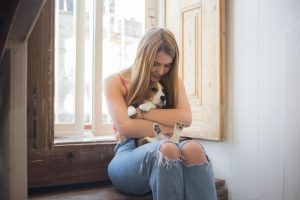Some people call it Huskydoodle, others call it Huskypoo, but the original name should be Husky Poodle mix. This designer dog is a cross between a Siberian Husky and Poodle dog breed. You might be wondering what you get. On one side, you have a Husky parent that sheds all year long, and on the other, you have the Poodle parent that doesn’t shed.
So, for all the Husky lovers out there, you are probably wondering, can you have a Husky that doesn’t shed? Well, read on to find out more.
Meet The Breed
This pet is sweet, affectionate, and will put a smile on your face 24×7. The Husky Doodle is a hybrid dog that is interesting, and fun to be around, but also hyperactive.
After all, this new puppy has inherited some of the genes of the Siberian Husky parent, one that is quite active and needs vigorous exercise.
But your new puppy will be a loyal dog and will thrive as long as you can handle its strong personality.
Meet the Parents
Husky
Before we can talk about any crossbreed, we have to talk about the parents. In this case, one of the parents is Siberian Husky or Alaskan Husky. This canine was developed to be a sled dog, pulling sleds over large areas of icy land with limitless stamina.
That is why they are hyperactive, but also quite independent. The Husky has been used as a working dog for ages. Nowadays, the Alaskan is the one used more as a working dog, while the Siberian version is more of a family pet.
According to The American Kennel Club, the Husky is among the top 20 most popular dog breeds.
Some of the personality traits of Huskies include:
- Stubborn
- Hyperactive
- Intelligent
- Independent
- Loyal
- Love to play
- Friendly with other animals
Poodle
The second parent of this designer breed is Poodle, a dog that originates from Germany. Many people mistake Poodle for a French dog, but the breed actually comes from Germany.
Poodles come in three different sizes, Standard Poodle, Miniature Poodle, and Toy Poodle. And all of them can be used for crossing with other breeds.
Originally, Poodles were bred to be duck hunters, and that is why they have their fancy haircuts. Their hairstyle served a purpose, to keep them warm in the water.
Here are some personality traits of the Poodle parent:
- Intelligent
- Aloof around strangers
- Can be arrogant
- Loyal and loves to play with children
- Eager to please
- Love to have a job to do
- Kind and friendly
Appearance
Now let’s talk about the appearance of our Siberian Husky Poodle mix. In most cases, breeders use Standard Poodle for cross-breeding here, because of their larger size. Yet, the other two Poodle variants can be used as well.
There is no official standard for the appearance of the Huskypoo. After all, The American Kennel Club doesn’t recognize designer dog breeds.
Usually, these dogs look like a Poodle with Husky colors, with the size depending on whether breeders used Miniature Poodle or a Standard one. Colors can vary between black, dark brown, and even striking blue. Larger dogs will have more muscular forequarters and hindquarters, while smaller dogs have more delicate legs.
Size can range between 13 and 22 inches, while weight can go between 45 and 60 pounds.
Speaking of the coat, they can inherit either a single coat or a double coat. If your dog has a double coat, it will be a thick, shaggy top layer over a wooly undercoat. The single coat can grow very long without shedding as much.
Temperament
One of the reasons why breeders cross these two is to eliminate some of the bad personality traits and retain the good ones from both parents.
But when you bring this fluffy dog inside, be ready for complete chaos. These dogs are friendly and affectionate, but also clingy. They have an enormous need for attention that can sometimes take up your entire day.
When you are home, this needy puppy will not leave you alone. They are also physically demanding. After all, both their parents are quite active, and intelligent. You will have to provide plenty of physical exercises and mental stimulation.
Boredom is the last thing you want to achieve. If your Huskydoodle puppy is bored, it will resort to destructive behavior like chewing.
Another thing to keep in mind, both parents are vocal. One howls more than it barks, and the other is not afraid to voice its opinion.
Expect your Huskydoodle to be friendlier towards strangers and other dogs compared to Poodles, but not as friendly as a regular Husky. When socialized properly, they are docile and friendly.
Training
Here is the good part. Unlike training a Siberian Husky, training a Huskypoo is a bit easier.
After all, this dog is not as stubborn as its parent breed. Your Doodle will be more intelligent, and more willing to please. Yet, it retains some of the independent and stubborn character. They are not the easiest dogs to train.
The good news is that they love dog food. With some kibble and treats, you can achieve a lot. Positive reinforcement and obedience training is a must for your new puppy. Start as early as possible.
One thing to keep in mind, this Husky mix will have a short attention span. Make the training session short and fun, and try to add some games to keep your pet mentally stimulated.
Exercise Needs
When you have a Poodle Husky mix, you have to be ready to provide plenty of physical exercise. Your new dog will need plenty of room to run and burn its energy.
These dogs have a natural love for the outdoors and will do best in a big backyard. And they make wonderful fitness partners, be it for hiking, jogging, or anything else. This high-energy mix puppy has a passion and love for playing and spending time outdoors.
Just do not forget mental stimulation. With an intelligent dog breed like this one, it is just as important as physical exercise.
Health
Another reason why designer breed dogs have been popular lately is the health concern. Usually, mixed breeds have better health than purebred dog breeds.
In this case, your Siberian Husky poo has a life expectancy of between 11 and 14 years. It is a generally healthier dog compared to its parents.
The one thing to keep in mind is hip evaluation for the joints. Both Huskies and Poodles are prone to arthritis and hip dysplasia, so make sure to do regular testing and scheduled vet visits.
Grooming Needs
Depending on which parental gene is the dominant one, you might spend hours or several minutes of grooming. If your pet inherits the Husky gene, you can expect to spend hours grooming and expect a lot of shedding. On the other hand, if you get the Poodle gene, you will have a dog that sheds significantly less.
No, it is not completely hypoallergenic, but you will greatly reduce the shedding.
Top 3 Reasons To Avoid This Breed
- You might be dealing with a legendary stubbornness, with both parents having a reputation of being a stubborn dog
- This hybrid dog tends to have skin allergies and a sensitive tummy. You might have to spend extra money on dog food
- Separation anxiety is a huge risk because these dogs are needy, clingy, and need constant attention
Why Should You Get One?
- You will have an extremely smart dog, inheriting the brain of the Poodle and Husky. It will make training much easier than purebred Husky dog
- They are healthier compared to either parent
- They shed considerably less than Huskies, especially if your puppy inherits the Poodle gene

